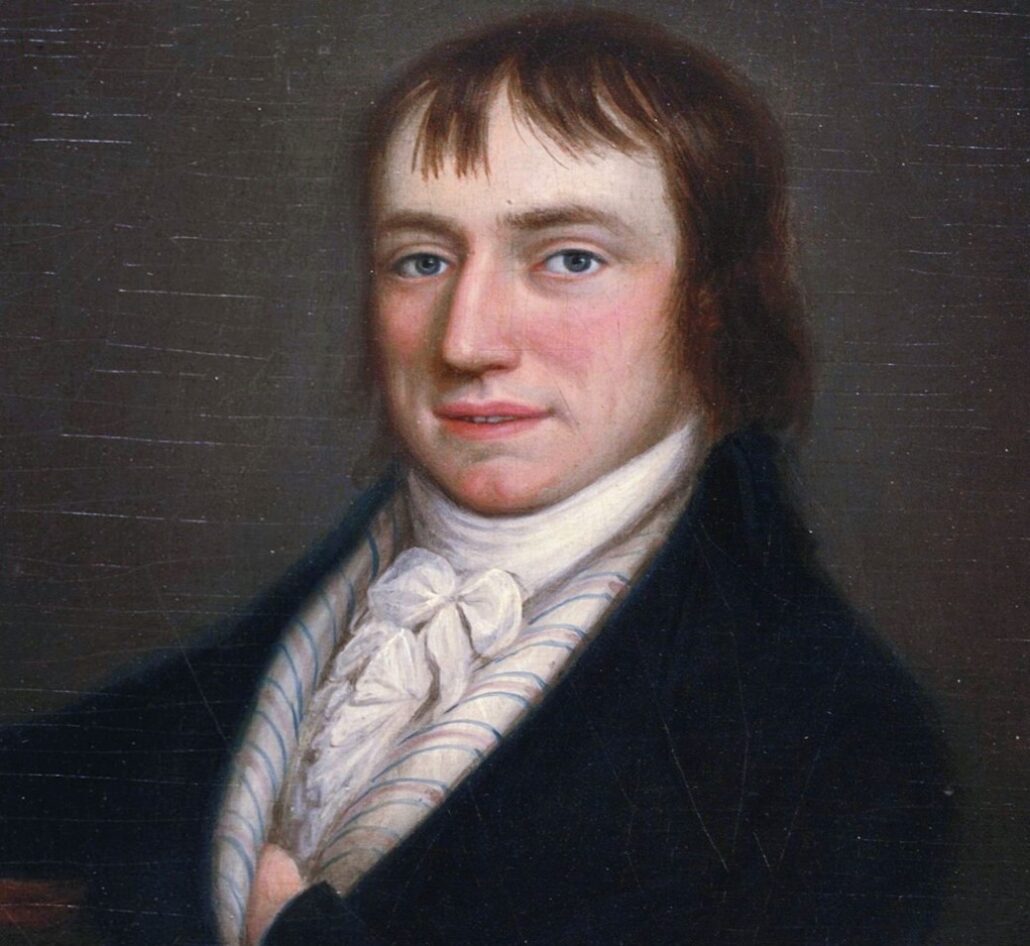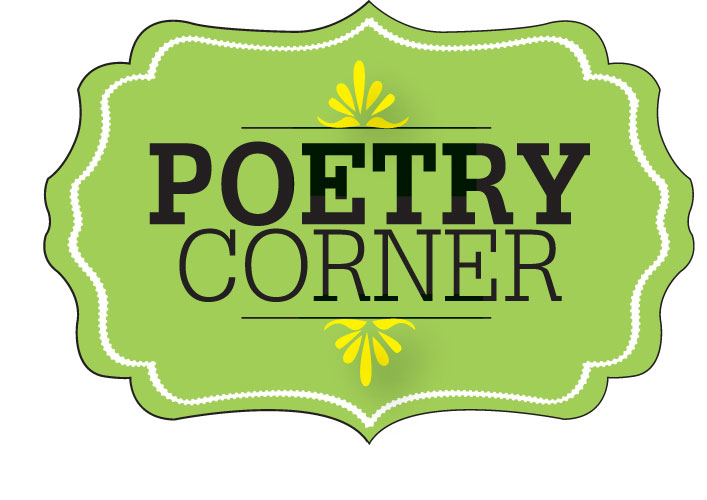By Norah Christianson
The World Is Too Much With Us

-William Wordsworth (English Romantic Poet 1770 – 1850)
The world is too much with us; late and soon,
Getting and spending, we lay waste our powers;—
Little we see in Nature that is ours;
We have given our hearts away, a sordid boon!
This Sea that bares her bosom to the moon;
The winds that will be howling at all hours,
And are up-gathered now like sleeping flowers;
For this, for everything, we are out of tune;
It moves us not. Great God! I’d rather be
A Pagan suckled in a creed outworn;
So might I, standing on this pleasant lea,
Have glimpses that would make me less forlorn;
Have sight of Proteus rising from the sea;
Or hear old Triton blow his wreathèd horn.
In this beautiful sonnet, William Wordsworth reproaches us for being saturated in materialism. “Getting and spending, we lay waste our powers”—our “powers” being our intellectual and emotional powers. We’ve given away our sordid, sleazy hearts, he says, and now are without heart. We are out of tune with everything, but mostly we’ve lost our connection to nature. We are moved neither by the moon nor the winds, whether howling or resting “like sleeping flowers.”
Around the time Wordsworth wrote this sonnet, the Industrial Revolution was in its infancy. He could see how people were becoming obsessed with material things and money. In the middle of the poem, Wordsworth moves from the perspective of “we” to the more personal “I.” He addresses God and then, paradoxically, avows he’d rather be a pagan—someone without a religion per se, but who worships the things of nature, sees divinity in the oceans, animals, trees, plants, and who believes nature has spiritual meaning. Wordsworth wishes that, as a pagan, he could stand in a pleasant meadow overlooking the sea, and glimpse Proteus and Triton (Greek gods of the sea), and thereby feel less disconsolate and hopeless.
Well then! I would agree that we humans are indeed a materialist bunch. However, I don’t believe materialism is anything new in the world. There have been rich patricians in Rome, wealthy aristocrats in ancient Greece, monied merchants in the Maurya Empire. Stone Age women most likely delighted in their collection of boar-tusk necklaces.
Long ago, having gone through an awful divorce in my late thirties, I lost a bit of my wits. I was seeing a therapist in Westport—where the therapists roam. I was depressed. One day the therapist said to me, “You should try bi-therapy.” That’s what I heard. I plunged even deeper into depression thinking she meant that I was so far gone I was needing two therapists (the “bi”) to pull me out of my dark hole. I obsessed over this for 7-1/2 days, and at our next session I asked how I would go about arranging for such a thing as bi-therapy. She laughed, and then explained that she’d meant “buy” therapy. Go out and buy something for yourself. You deserve it. It will make you feel better, she said. Part of my depression, however, was financial—we were just managing to squeak by. So, as is the case of many things medical these days, I lacked the money to take the cure. (My guess is that Westportians don’t have that problem.)
At any rate, the therapist knew that buy-therapy could act like an anti-depressant. Buying something, something pretty, something that smells like roses, something you don’t need, makes you feel better.
I could not implement her remedy at the time, but now I can look around my house and see so many things I have bought over the years that I did not need. And, I love them. As Lear said, “Oh reason not the need!” I am also reminded of the old proverb: “If you have two loaves, sell one and buy hyacinths for your soul.” (Attributed to Muhammad, Herodotus, John Greenleaf Whittier, Moslih Eddin Saadi, and probably Willie Nelson.) Life is hard. We need more than our fundamental necessities. We need beauty. We need rewards.
BUT I do agree with Wordsworth that we are losing our connection to nature as a result of our “getting and spending.” People have become indifferent to nature—even to the point of not taking climate change very seriously, if at all. Yes, people still walk their dogs, but they’re not examining the river patterns or the lichens on the tree bark, or noticing (for there is nature everywhere) the great cluster of gulls all facing the same way into the wind in Walmart’s parking lot.
The National Institute of Health, the American Psychological Association, UC Davis Health, and many, many more health organizations specify that nature—simply being out in all that blue and green, just walking across the grass, just seeing clouds or stars or moon—can keep us more mentally stable, less anxious, less depressed—not to mention physical benefits like lowering blood pressure and helping with sleep.
So I’m guessing the solution is to go for that little charge you’ll get from buying those drugstore earrings you’ve been jonesing for, or that backpack that converts to an end table (it helps the economy after all). But then go out of doors and windows and roofs into the meadows and woods or your own backyard and examine the little wonders you see, the “splendour in the grass” (Wordsworth), breathe in the scents roving the air, and appreciate that natural world which has not that too much been with you. And make it a habit.

